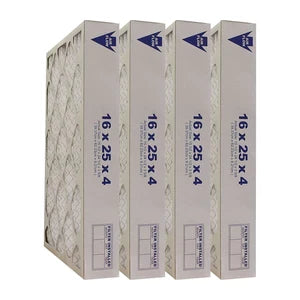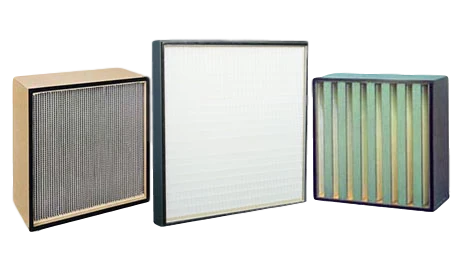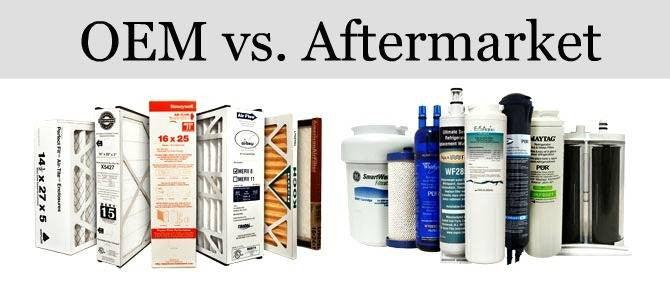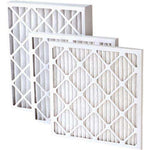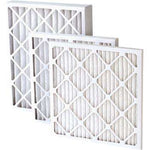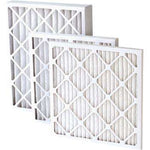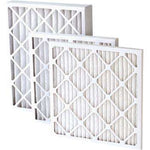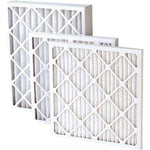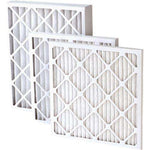You have no items in your shopping cart.
OEM (Original Equipment Manufacturer) filters are the specific filter model marketed with the original equipment.
Aftermarket products are created by a different company to the same specs as the OEM product. They are designed to fit and work the same as the original.
Deciding between aftermarket vs OEM
Price - OEM furnace filters generally set you back a few more dollars due to the cost of advertising and the dealer network.
Efficiency - both have been checked and are given a MERV rating to compare performance. The greater the MERV rating the more efficient the filter. Most residential furnace filters are in the MERV 5-13 scale. MERV rating is a good device for the consumer who is comparing, and helps in choosing the right furnace filter for their home.
Material - the product or media that the filter is made of and also the amount of media plays a vital function in exactly how the filter performs. Today most of the media is 100 % artificial and will not absorb water. In the past, media was manufactured from natural fibers or a combination of natural as well as artificial fibers. This was problematic due to the fact that they were prone to micro-organism and mold development.
Why Choose - Aftermarket Furnace Filters?
Economical: Aftermarket are often more economical compared to OEM; the amount you save varies by brand. Shop around to locate the best value. Also helps to educate you on the prices of different makes and products.
Quality can be equal to or higher than OEM: Don’t be surprised if you end up with a better part compared to the one you were working with. The aftermarket companies reverse-engineer the component, and work the weak points out.
Variety: There are numerous companies that make aftermarket replacement components. Take a look at a company like NAPA Parts. They carry almost any type of aftermarket replacement available. Greater consumer options will produce a larger range of competitive price points.
Availability: You can walk into most gas stations, oil change shops or even a local mechanic, and they typically have a part that fits your vehicle.
OEM (Original Equipment Manufacturer) filters are the specific filter model marketed with the original equipment.
Aftermarket products are created by a different company to the same specs as the OEM product. They are designed to fit and work the same as the original.
Deciding between aftermarket vs OEM
Price - OEM furnace filters generally set you back a few more dollars due to the cost of advertising and the dealer network.
Efficiency - both have been checked and are given a MERV rating to compare performance. The greater the MERV rating the more efficient the filter. Most residential furnace filters are in the MERV 5-13 scale. MERV rating is a good device for the consumer who is comparing, and helps in choosing the right furnace filter for their home.
Material - the product or media that the filter is made of and also the amount of media plays a vital function in exactly how the filter performs. Today most of the media is 100 % artificial and will not absorb water. In the past, media was manufactured from natural fibers or a combination of natural as well as artificial fibers. This was problematic due to the fact that they were prone to micro-organism and mold development.
Why Choose - Aftermarket Furnace Filters?
Economical: Aftermarket are often more economical compared to OEM; the amount you save varies by brand. Shop around to locate the best value. Also helps to educate you on the prices of different makes and products.
Quality can be equal to or higher than OEM: Don’t be surprised if you end up with a better part compared to the one you were working with. The aftermarket companies reverse-engineer the component, and work the weak points out.
Variety: There are numerous companies that make aftermarket replacement components. Take a look at a company like NAPA Parts. They carry almost any type of aftermarket replacement available. Greater consumer options will produce a larger range of competitive price points.
Availability: You can walk into most gas stations, oil change shops or even a local mechanic, and they typically have a part that fits your vehicle.
